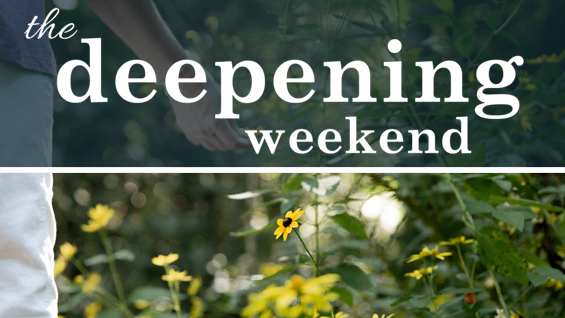20+ Years of Braveheart Part 2 of 4
In the month of May, we are paying tribute to the 20th anniversary of the story and film Braveheart. The story has all the great elements that make men hold our breath, tense our muscles, clinch our teeth and even reach for a Kleenex. (For more on the background and storyline of the epic film, Braveheart, take a look at last week’s blog)
This week I wanted to put the spotlight on a very, very critical part of the Braveheart story; a chapter from William Wallace’s boyhood that shaped him into the man that would eventually lead a Scottish revolution and sacrifice his life to inspire the lives of many.
Early in the film, after William’s father, Malcolm, is murdered by Edward the III, young William’s world is turned upside down. And then, it is turned upside down again. While the shovels of dirt are returning to their graveside hole, a rider appears. Chiseled and regal a top the extra-large white steed, the rider introduces himself to William as his uncle, Argyle, brother to Malcolm.
Continue...
Argyle enters William’s story at a time of great loss. A strong and confident man enters a confused boys world and the rescue has begun. “Tomorrow, you’ll come home with me.” William doesn’t want to go; he has no idea the glorious offer being made that will over time, alter his life for the good. Isn’t that often the case? Through tragedy our lives are wrecked and after we have lived through, when we look back, many a heart declares that it was from the wreckage many a man found courage, many a man made strong. Yes, made.
So tragic it is when there is no rider, no rescuer, no one who comes to say, “Tomorrow you come home with me”… in other words, “Ill take care of you, it’s going to be alright. Trust me.” Later after Argyle prepares a meal, he asks young William about the benediction, the funeral service and how or if it was conducted properly. Young Wallace replies that he doesn’t know, “it was in Latin”. Argyle curiously and kindly asks, “You don’t know, Latin.” With a horizontal head shake from William, Argyle then states, “Well that’s something we shall to have to remedy, isn’t it.”
I always liked this moment. As if it was the first candle lit with hope in a series of bad days in William’s life. I want an uncle Argyle. Every man seems to.
Continue...
So I offer 3 things every Dad can learn from Uncle Argyle
1. Ride up…
Or in otherwords, “show up”. Again and again, ride up and into the lives of your children. Ask questions, invite them to share, introduce yourself over and over as someone who is there to help… as someone who wants to help. Be present to your young heart.
2. Bring Remedy…
Every young boy and every little girl is wanting to be seen, longing to feel they belong, hoping to hear the words or feel actions that speak, “I see you, and I love what I see.” Often little girls will twirl and little boys will ask you to feel their muscle. Watch me, watch this…or look at me, look what I can do. It’s more of a vulnerable question, really, rather than a jabbing demand. I’m so glad we grow out of this. Just kidding, you and I know better.
In the next to final scene with Argyle, William is standing next to this larger than life character—the “outlawed tunes on outlawed pipes” scene. William’s eyes move from the tributeers whaling away on their instruments under arm while attending graveside to their fallen friend. William’s attention goes to where any 10, 11 or 12 year-old boy's attention would go, to the great sword of his father—the equipment of a warrior heart ready to protect what is his and stand for what is good, right and true. Argyle sees this, and he intervenes. “First, learn to use this (pointing to the lads forehead, his mind). Then, I’ll teach you to use this (drawing his sword).”
3. Teach’em to use this, before you teach them to use this…
Whatever moment it is, and there will actually be many, a father needs to see the moment and then seize the moment for all it's worth. Much more can be done in the hearts of sons and daughters who feel invited rather than indicted, encouraged rather than blamed, wanted instead of dismissed. This is much easier to write about than to live about. Teaching first comes from example; then it comes from words. Be caught doing right, good and true then explain it to the younghearts if you have to.
Many a Dad has jumped to the wrong conclusion and stepped atop his soap box with lecture and a firm talking to when a knee would serve better—a couple questions and some arms open & inviting rather than closed & across his chest. Often young hearts will give Dad a moment, other times a father will need to make one... a moment that is. Make sure you are looking for both, and then take a short and sweet advantage. It is sooo important. You never know, in most of those moments, whose freedom is at stake. God is Fathering each of us—teaching us and training us to have our wits about us and to do exactly what He does… He rides up, brings remedy and teaches us how to use "this" before he will teach us how to use "this." And God will do this in my life and yours again and again… if we will go with Him into the great adventure, out of the tragedy and into the fight for freedom.


